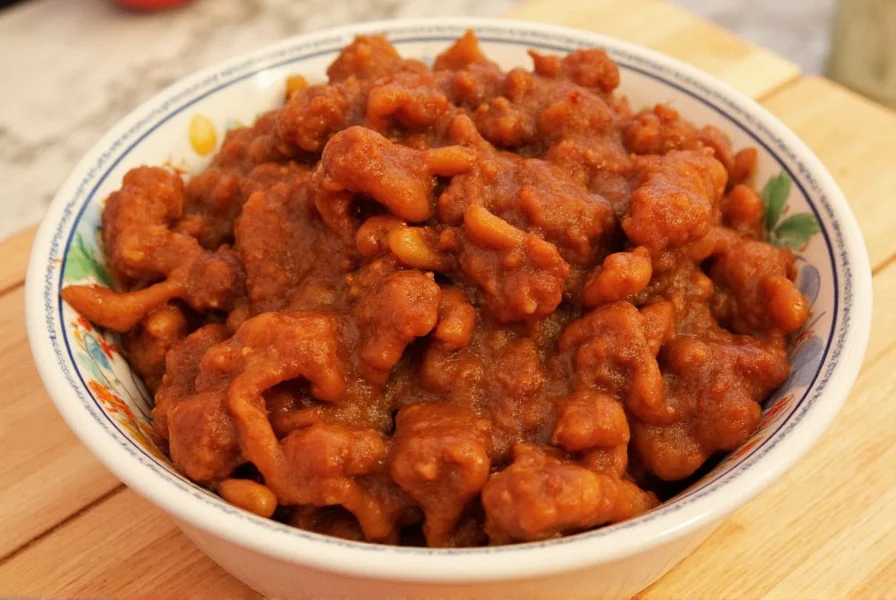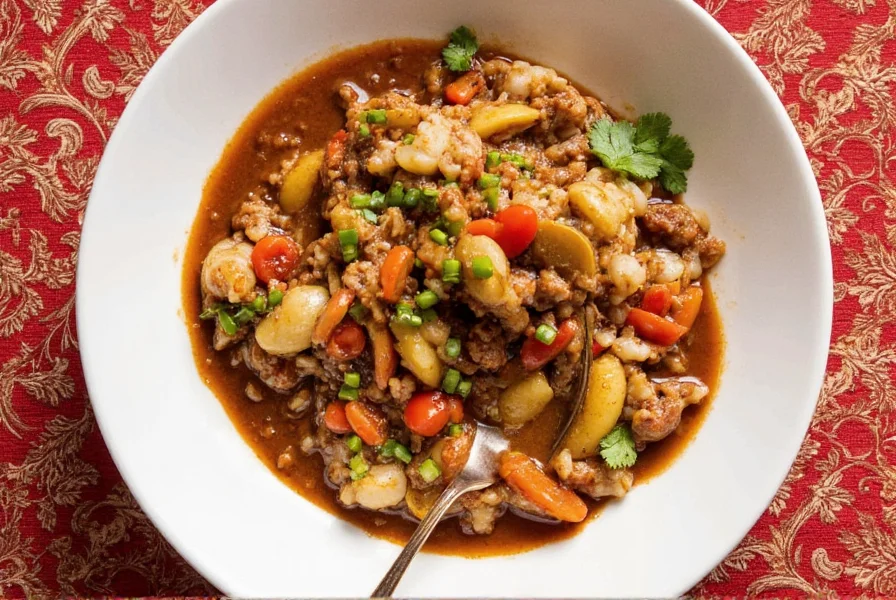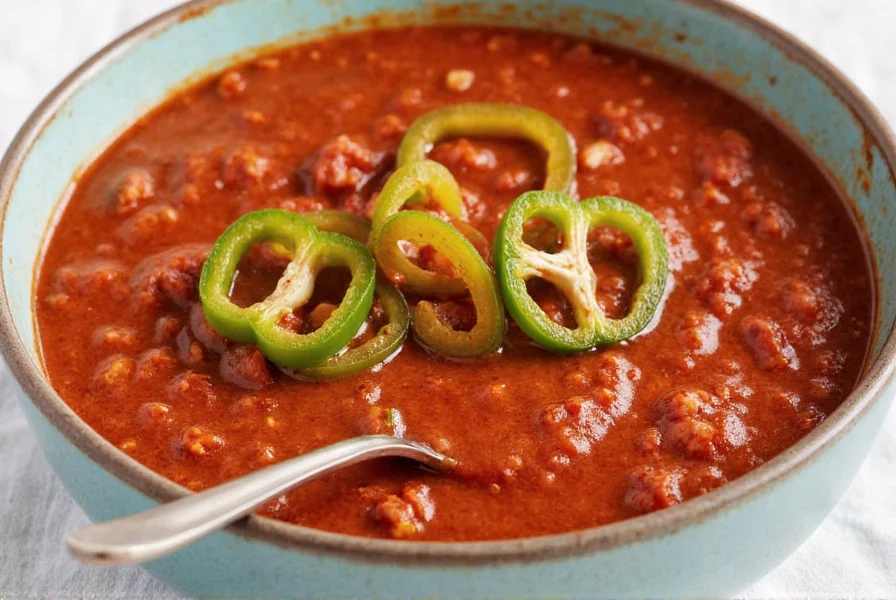Chipotle peppers in adobo sauce are smoked jalapeños preserved in a tangy, slightly sweet vinegar-based sauce. This versatile ingredient adds deep smoky heat to dishes while balancing flavors with its complex acidity. With a Scoville rating of 2,500–8,000 units, they're medium-hot but more nuanced than fresh jalapeños. Below is a complete guide to using, storing, and buying this essential pantry staple.
| Brand | Features | Spice Level | Best For |
|---|---|---|---|
| MexiCali Foods | Natural ingredients, no preservatives, organic certification | Mild to medium | Beginners, health-conscious cooks, gluten-free diets |
| La Costeña | Traditional Mexican recipe, authentic flavor profile | Medium-hot | Tacos, salsas, authentic Mexican dishes |
| Don Julio | Thicker sauce, higher pepper concentration, premium quality | Hot | Pro chefs, serious spice enthusiasts, bold recipes |
| Goya | Widely available, balanced flavor, consistent quality | Mild-medium | Everyday use, soups, marinades, budget-friendly options |
When selecting cans, look for plump, dark brown peppers with deep red, viscous sauce that clings to the peppers. Avoid cans with watery sauce or shriveled peppers. Most major brands are gluten-free and vegan, but always check labels for additives.
How to Store Chipotle Peppers in Adobo Sauce
Refrigeration Method
- Transfer leftovers to a clean, airtight glass container
- Submerge peppers completely in adobo sauce to prevent drying
- Store at 40°F (4°C) or below for up to 21 days
- Use clean utensils to avoid contamination
Freezing Technique
- Chop peppers into 1/4-inch cubes and place in ice cube trays
- Fill each compartment with adobo sauce (not water)
- Freeze solid (about 2 hours), then transfer cubes to labeled freezer bags
- Store at 0°F (-18°C) for up to 6 months
- Use frozen cubes directly in hot dishes without thawing
Dehydration Method (Advanced)
- Spread peppers on parchment-lined baking sheet at 170°F (77°C) for 4-6 hours
- Grind dried peppers into powder using a spice grinder
- Store powder in airtight container away from light for up to 1 year
- Use 1/2 teaspoon powder per pepper equivalent in recipes

10 Professional Uses for Chipotle Peppers in Adobo Sauce
- Tomato Soup Enhancement
Blend 1-2 chopped chipotles (or 1 tsp adobo sauce) into canned tomato soup. Add 1 tsp honey to balance heat. Serves 4 with 150 calories per serving. - Smoked Mayonnaise
Mix 1/4 cup mayonnaise, 1 tsp adobo sauce, 1 minced chipotle pepper, and 1/2 tsp lime juice. Perfect for burgers, sandwiches, or as a dip for roasted vegetables. - Taco Seasoning Boost
Combine 1 tsp adobo sauce with 1 lb ground beef, 1 tbsp chili powder, and 1 tsp cumin. Cook until browned for instant flavorful tacos. - Chipotle Ranch Dressing
Whisk 1/2 cup sour cream, 1/4 cup buttermilk, 1 tsp adobo sauce, 1 tbsp chopped cilantro, and 1 minced chipotle. Chill for 1 hour before serving. - BBQ Sauce Base
Combine 1 cup ketchup, 1/4 cup adobo sauce, 2 tbsp molasses, 1 tbsp apple cider vinegar, and 1 tsp smoked paprika. Simmer for 15 minutes for sticky ribs or grilled chicken. - Enchilada Sauce Upgrade
Blend 1 chipotle pepper with 1 cup tomato sauce, 1/2 cup broth, and 1 tsp oregano. Simmer 10 minutes for rich, smoky enchiladas. - Marinade for Chicken
Combine 2 tbsp adobo sauce, 2 tbsp olive oil, 2 minced garlic cloves, 1 tbsp lime juice, and 1 tsp cumin. Marinate chicken for 4+ hours before grilling. - Smoky Hummus
Blend 1 can chickpeas, 2 tbsp tahini, 1 minced chipotle, 2 tbsp lemon juice, and 1/4 cup water. Garnish with cilantro and olive oil. - Spicy Bloody Mary
Add 1/2 tsp adobo sauce to your Bloody Mary mix. Garnish with a pickled chipotle pepper for extra heat. - Vegetable Glaze
Toss roasted carrots or sweet potatoes with 1 tbsp adobo sauce and 1 tsp honey. Bake at 400°F (200°C) for 20 minutes until caramelized.

Expert Flavor Pairings
- Sweetness: Honey (1:2 ratio with adobo sauce), maple syrup, brown sugar
- Creaminess: Avocado (1/2 avocado per 1 chipotle), sour cream, Greek yogurt
- Acidity: Lime juice (1 tsp per 1 tsp adobo sauce), red wine vinegar, tomatoes
- Earthiness: Black beans, lentils, mushrooms, roasted squash
- Herbs: Cilantro (fresh), oregano (dried), thyme, epazote
Pro Chef Combos
- Chipotle-Honey Glaze: 2 tbsp honey + 1 tbsp adobo sauce + 1 tsp lime juice. Brush on salmon or chicken before baking.
- Avocado Chipotle Spread: 1 ripe avocado + 1 minced chipotle + 1 tbsp lime juice. Perfect for tacos or toast.
- Chipotle Margarita: 2 oz tequila + 1 oz lime juice + 1/2 tsp adobo sauce. Shake with ice and rim with chili salt.
- Coconut Curry Base: 1 can coconut milk + 1 chipotle pepper + 1 tbsp red curry paste. Simmer with vegetables for vegan curry.

Frequently Asked Questions
How spicy are chipotle peppers in adobo sauce?
Chipotle peppers range from 2,500–8,000 Scoville units, making them medium-hot (similar to jalapeños but with more complexity). The adobo sauce tempers the heat somewhat. Start with 1/2 pepper per recipe and adjust based on your heat tolerance. For reference: bell peppers = 0 Scoville, jalapeños = 2,500–8,000, habaneros = 100,000–350,000.
How many chipotle peppers equal how much powder?
One chipotle pepper in adobo sauce equals approximately 1 teaspoon of chipotle powder. However, since adobo sauce contains vinegar and spices, when substituting powder for canned peppers, use 1 teaspoon powder plus 1/2 teaspoon vinegar or lime juice to replicate the sauce's tanginess.
How long do they last after opening?
When stored properly in an airtight container with adobo sauce covering the peppers, they'll stay fresh in the refrigerator for 2-3 weeks. For longer storage, freeze in ice cube trays (1 pepper per cube) for up to 6 months. Frozen cubes can be added directly to hot dishes without thawing.
What are good substitutes if I don't have chipotle peppers in adobo?
For smoky heat: 1 teaspoon smoked paprika + 1/4 teaspoon cayenne. For similar flavor profile: 1 teaspoon smoked paprika + 1/2 teaspoon tomato paste + 1/4 teaspoon vinegar. Chipotle hot sauce works in a pinch but is thinner and saltier—use half the amount.
How can I reduce the spiciness if I add too much?
Add dairy (sour cream, yogurt) to neutralize capsaicin. Dilute with more base ingredients (tomatoes, beans, broth). Balance with sweetness (honey, sugar) or acidity (lime juice). For soups or sauces, add a peeled potato to absorb heat, then remove before serving.
Are chipotle peppers in adobo sauce gluten-free and vegan?
Most major brands (La Costeña, Goya, Don Julio) are naturally gluten-free and vegan. However, always check labels as some may contain additives like maltodextrin (sometimes derived from wheat) or non-vegan preservatives. Certified gluten-free brands include MexiCali Foods and certain Goya varieties.
Can I make my own adobo sauce from scratch?
Yes! Combine 2 rehydrated chipotle peppers (or 1 tbsp powder), 1/4 cup tomato paste, 2 garlic cloves, 1/2 tsp each dried oregano and cumin, 1/4 tsp cloves, 2 tbsp apple cider vinegar, and 1/2 cup water. Simmer for 10 minutes until thickened. This allows full control over ingredients and spice level.
What's the difference between chipotle peppers and smoked paprika?
Chipotle peppers are actual smoked jalapeños with complex heat and flavor, while smoked paprika is ground from milder smoked peppers (usually pimentón). Chipotles deliver both heat and smokiness (2,500–8,000 Scoville), while smoked paprika provides smokiness with varying heat levels (sweet = 0 Scoville, hot = 500–1,000). They complement each other but aren't direct substitutes.
Can I use chipotle peppers in desserts?
Yes! A small amount (1/4 tsp adobo sauce) adds complexity to chocolate desserts. Try adding to brownie batter, chocolate cake frosting, or chili chocolate sauce. The heat balances sweetness beautifully without overpowering the dish.
Where can I buy chipotle peppers in adobo sauce?
Most major grocery stores carry chipotle peppers in adobo sauce in the international or Mexican food aisle. Common retailers include Walmart, Target, Kroger, and Whole Foods. Online options include Amazon, Thrive Market, and specialty food sites like MexGrocer.com.
Conclusion: Mastering Chipotle in Your Kitchen
Chipotle peppers in adobo sauce are a culinary powerhouse that transforms ordinary dishes into extraordinary meals. With their perfect balance of smoke, heat, and tang, they're the secret weapon of professional chefs and home cooks alike. Remember: start small with heat, taste as you go, and experiment fearlessly. Whether you're making a simple taco night or a sophisticated dessert, this versatile ingredient will elevate your cooking with minimal effort.












 浙公网安备
33010002000092号
浙公网安备
33010002000092号 浙B2-20120091-4
浙B2-20120091-4